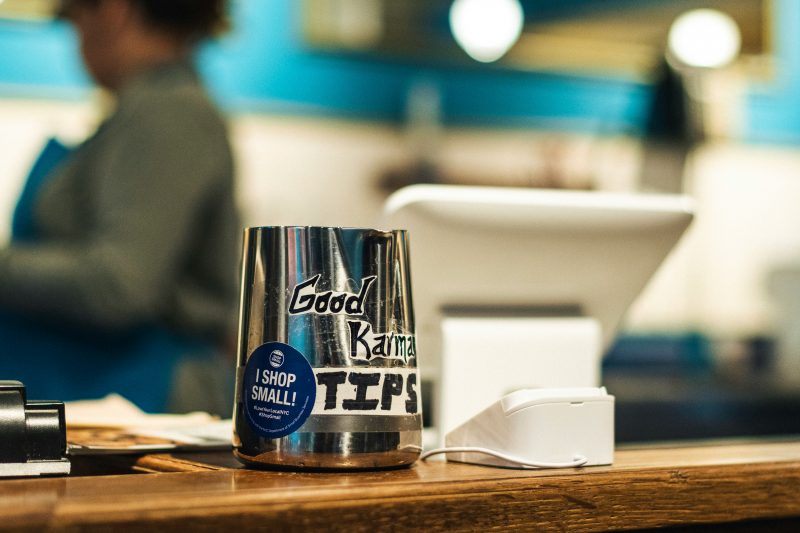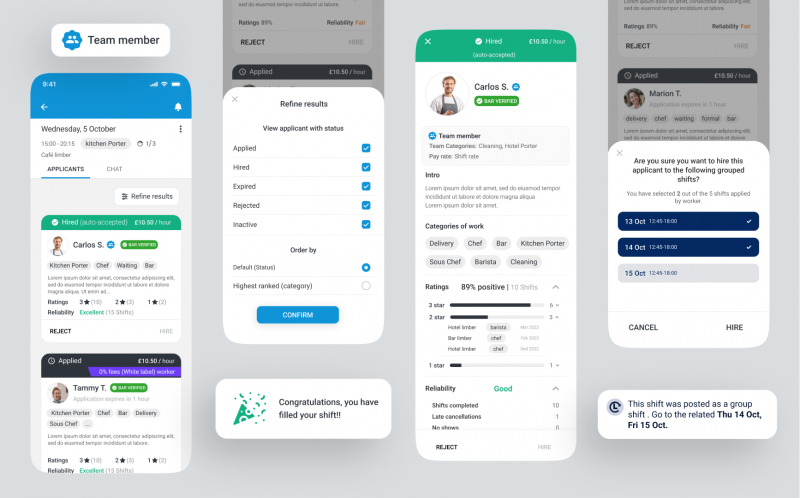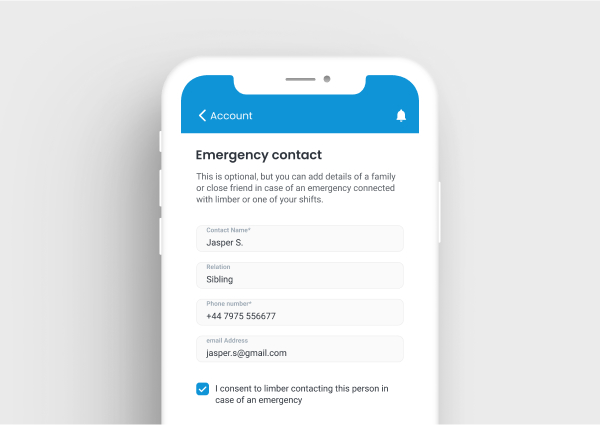We’re well aware that for some of our workers, the Covid-19 outbreak may cause extra financial strain and worry. We hope the disruption is as brief as possible, but in the meantime, we’ve outlined the current government guidelines and financial support available for those who find themselves with reduced income due to coronavirus.
Sick pay
If you are off sick with coronavirus, your entitlements depend on the hours you have worked. As it stands, limber workers should be eligible for sick pay if your average weekly earnings (before tax and deductions) over the last 8 weeks are over £118. You can find out how to claim here:
https://www.gov.uk/statutory-sick-pay/how-to-claim
Having said this, sickness cover is unlikely to cover loss of earnings if shift work is not available because customers are staying at home or venues choose to close.
Universal credit and ESA – for those with UK Citizenship only
For those who do not qualify for Statutory Sick Pay, you may be able to claim universal credit or new-style employment and support allowance – even if your reduction in hours is very small. We predict most Limber workers will want to claim Universal Credit, but here is some information about ESA new style:
ESA is only a sickness benefit for those too sick to work. It can not help you to claim other costs such as housing costs. In this situation, you will need to claim Universal Credit on top. The benefit of new style ESA is there is no capital limit – you can have over 16,000.00 in savings and claim this. Limber workers can claim this benefit if they:
- Can not claim SSP
- Have earnt the NI contributions
- Are currently too sick to work because they may have coronavirus, and
- Have savings over £16,000.00.
In terms of the second point, you must have paid National Insurance Contributions for the last two to three years and these need to be equivalent to the ‘lower earnings limit’ for a certain period of weeks. This means you must have worked for at least 26 weeks in one of the last two complete tax years; and in both of the last two complete tax years, you must have paid contributions to the value of 50 times the lower earnings limit. The lower earnings limit in 2018/19 was £116.00 a week.
Because of the above limitations, it is predicted most people will want to claim Universal Credit instead.
Universal Credit
You can claim this even if you are earning income from work. This means if you are currently using limber and completing certain shifts, but you have found you are not earning the same level of income as you were previously, you can claim UC and this will ‘top-up’ your income.
You do not need to be sick to claim UC, but what the government has said is if you have Coronavirus, you will not need to search for work for two weeks whilst claiming UC.
If you are claiming UC because you are not receiving enough income from work, you will be seen as a job seeker. This means you are supposed to search for work for 35 hours a week and have fortnightly meetings at the jobcentre. At the moment, many people cannot leave their homes, so the jobcentre will likely relax this condition, they may hope you can search for work from home instead.
In terms of what you can receive, you will be able to receive the standard allowance (£257 for those under 25 or £317 for those over 25) per month. Then, you may also receive the Housing Element on top. If you are privately renting then you may find it covers most of your costs but not all. For example, it may cover £300.00 of your rent.
In this situation, you could have a total of say £557.00 from UC.
What then happens with your earnings from limber or other work?
The total is calculated and 63 pence of every £1.00 is reduced from your total earnings, then deducted from your UC total. So if you earn £200.00 a month, this will reduce £123.00 from your total UC, meaning you could have £434.00 a month from UC.
Another concern is the length of time payment takes. With UC, it takes 5 weeks to receive payment, a bit like a normal working salary. You should be able to receive an advance loan. This is a non-interest loan. You will pay it back, but only in what you can afford over time from future UC monthly amounts.
A last, important point, is the fact that UC has what’s called an ‘assessment period’. The assessment period usually lasts one calendar month. You will usually receive your first payment 7 days after the end of your first assessment period. Universal Credit will then be paid on the same date each month. Your normal payday will be fixed at 7 days after the end of your assessment period.
Debt advice
While we hope this will only apply to a few if any, we’re aware that some may not have the financial resilience to get through a period of reduced income, which may result in debt. You can find advice and help with managing debt here:
https://www.moneyadviceservice.org.uk/en/tools/debt-advice-locator
Ask for help
Please don’t be afraid to ask for help, these are worrying times and we should all be doing our part to support each other. Find our guide on looking after your mental wellbeing here or follow the links below.
If you have concerns or questions regarding work during the COVID-19 outbreak and would like to chat with someone, feel free to contact us at hello@limber.work. We’re happy to help.




